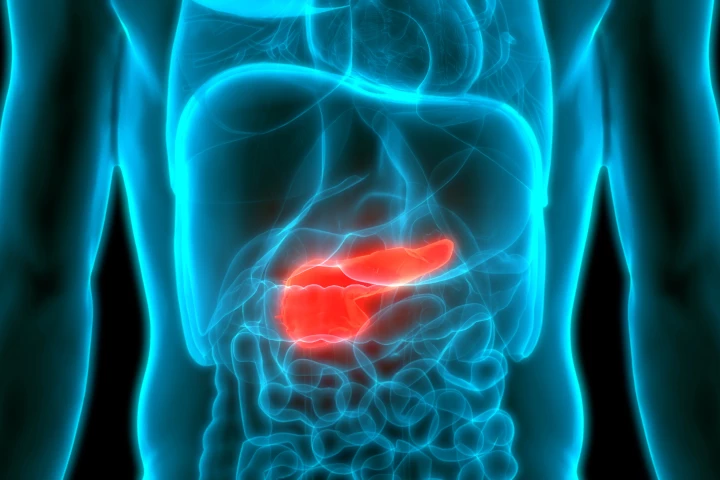Case Western Reserve University
-
An extremely popular nerve pain drug commonly given to those suffering from low-back issues has been linked to impaired mental health including dementia and mild cognitive impairment. The risk was present after six or more prescriptions were filled.
-
We could be on the verge of a major cancer breakthrough, with a new nanoparticle-based vaccine reportedly obliterating pancreatic cancer cells in preclinical trials. This success now takes it a step closer to a first-of-its-kind human trial.
-
The popular class of antidiabetic and weight loss drugs known as GLP-1RAs, which includes Ozempic and Wegovy, has been found to significantly reduce the risk of 10 out of 13 obesity-associated cancers in type 2 diabetics, according to new research.
-
A popular pill that assists with shut-eye may also help preserve those eyes, with a new study linking melatonin and the slowing of age-related macular degeneration. It's part of a growing body of research into the sight-protecting power of melatonin.
-
Scientists have discovered a new mechanism for how type 2 diabetes takes hold, and demonstrated in mice that blocking a particular enzyme could open a new avenue of treatment for the disease.
-
A clinical trial has shown that the cardiovascular benefits that the drug semaglutide, sold as Ozempic and Wegovy, affords to overweight or obese type 2 diabetics extend to those without diabetes.
-
Our solar system officially houses eight planets, but some scientists say there could be a ninth hiding on the fringes. Now, a new study has found the oddities could be explained by modified theories of gravity, an alternative idea to dark matter.
-
A study has found COVID-19 nearly doubles a person’s risk of developing Alzheimer’s disease in the year following infection. The findings add to a body of research indicating SARS-CoV-2 infections can affect progression of neurodegenerative disease.
-
Dark matter is currently the most widely accepted hypothesis for explaining some of the weirdness we see in the cosmos. But now astronomers have discovered evidence in over 150 galaxies for a long-standing alternative model of “modified gravity.”
-
Preliminary research has discovered several blood-based biomarkers which can specifically indicate stroke damage to brain tissue. The goal of the research is to develop a simple blood test to rapidly detect whether a patient is suffering a minor stroke.
-
Through advanced imaging, scientists have identified the binding sites that certain molecules use to interact with brakes for cancer, revealing how drugs could be used to activate this “off-switch” and keep the disease in check.
-
A study is suggesting a previously unknown protein may play a role in the pathogenesis of Alzheimer’s. The study claims this protein facilitates the formation of the amyloid plaques thought to cause the neurodegeneration associated with the disease.
Load More











